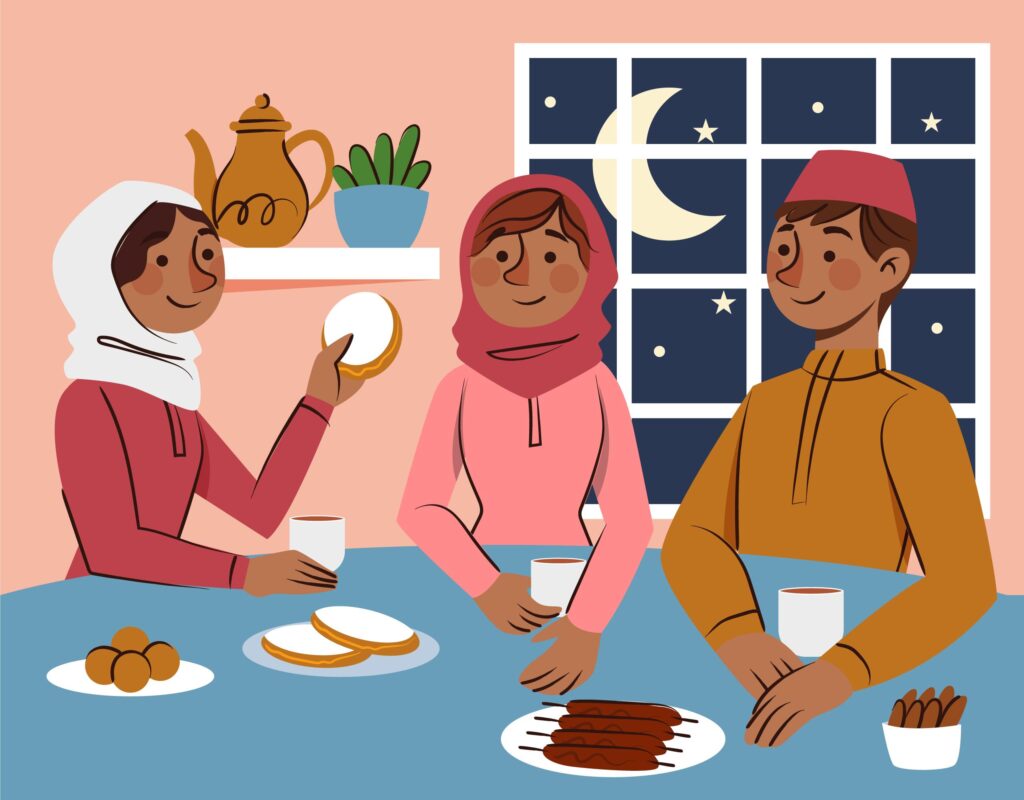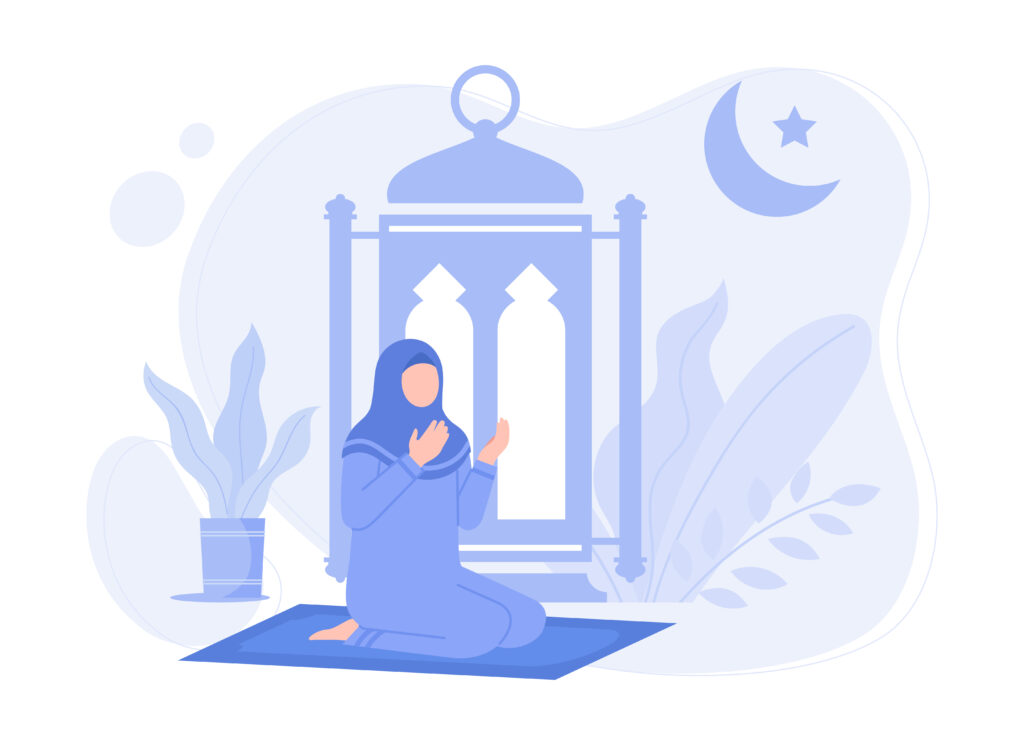How to support a friend during Ramadan

This year, Ramadan starts on the evening of the 28th of February. Millions of Muslims around the world celebrate by fasting and focusing on good deeds, gratitude and prayer. This blog will give you more information about Ramadan and ideas about how to support others during the month.
What is Ramadan?
Ramadan is a holy month in the Islamic calendar. It lasts for about 29 to 30 days and the exact dates change each year because Islam follows the lunar calendar. Fasting is one of the Five Pillars of Islam, which is a guide of how Muslims live their lives.
Ramadan is also a time for self-reflection and improvement, and many try to break a bad habit during the month. Another practice during Ramadan is trying to read all 30 chapters of the Quran (Muslim holy book), usually one every day.
At the end of Ramadan, Muslims celebrate Eid al-Fitr. It marks the end of fasting and is filled with prayers, food and loved ones coming together. Many donate to charity, this is called Zakut-ul-Fitr, during Eid.
Fasting during Ramadan
You might be aware of the practice of fasting during Ramadan. This means that Muslims do not eat or drink between dawn and sunset. The meal before dawn is known as the suhoor and the meal after sunset is known as the iftar. Fasting allows Muslims to devote themselves to their faith, it teaches self-discipline and reminds them of the suffering of the poor.
Some people are exempt from fasting such as the elderly, pregnant women or young children. Most young Muslims start fasting during Ramadan in their early teens, so it’s possible that some people you know are fasting for the first time.
Although Ramadan is an exciting and meaningful time, fasting can be physically and mentally challenging. Here are some ideas of simple things you could do to support your friends:
- Be considerate when making plans – If you’re making plans, try to arrange them earlier in the day when they may have more energy from their morning meal or after their evening meal, and arrange activities that don’t centre around food.
- Check in – Feel free to ask them how they’re doing. It will show that you care and make them feel supported and seen.
- Respect different levels of observance – There are many reasons why some people don’t fast, and many are personal or medical.
- Show curiosity – Don’t be afraid to ask questions. Avoid giving your opinion or saying you feel bad for them. Let them explain what Ramadan means to them.
- Help with a good cause – Many give to charity (It is said that good deeds are multiplied by 70 during Ramadan) so you could donate to a cause or volunteer with a friend
- Be considerate – If they need time to pray or read the Quran give them space and time. They might have lower energy, so be understanding and let them rest.
If your friend is struggling encourage them to reach out for help. They can talk to family, other people in their religious community, or reach out for professional help. The Meic helpline is here to listen and we provide free information, advice and advocacy.





















